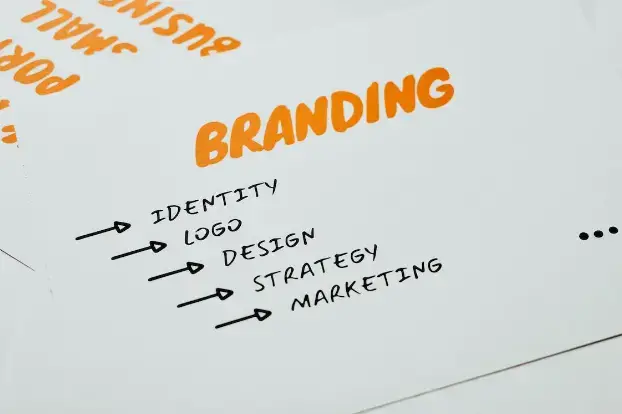There is stiff competition in the eCommerce market. But more important is the battle for customer attention. With the number of online shoppers growing by nearly one billion between 2019 and 2022, eCommerce businesses are attempting to find new ways to meet this demand more than ever.
However, customers are constantly bombarded with content and communication from hundreds of brands daily. At some point, they need to choose which brands they interact with.
So, how can you ensure they choose your brand and content to engage with? These strategies will help your eCommerce brand capture consumer attention and keep it in the digital age.

Essential Research Points in eCommerce
Research is necessary- in nearly every form- before you act to draw in more consumers to your eCommerce business.
You need to research your target audience and your competition. Both kinds of research will help you determine how your business can resonate with new audiences.
-
Target audience
To get your customers’ attention, you must get to know them and what draws them in when choosing brands.
Collect data about your customers at every touchpoint, such as your website (add a contact form) and social media, to figure this out.
These tools will give insights into the kind of content consumers view the most, how they get to that content, what they do with it, and so forth.
To understand the why, get into the minds of your consumers. Study the psychological aspects that persuade customers to purchase, consume content, or take another action.
For instance, prominently displayed bestsellers are more likely to get someone’s attention. Bold visuals can be particularly persuasive.
In addition, if you offer a gift with every purchase, customers will realize how highly valued your products are and will be more likely to return.
Aside from data collection and analysis tools, you can learn much about your customers in their own words.
You can figure this out through surveys, focus groups, and one-to-one conversations with consumers about who they are and why they take their actions.
-
Competition
It’s beneficial to know what they’re doing to attract consumers. You can take a few of their working concepts and make them your own.
Analyzing your competition also lets you see what’s missing between your customers. For example, if you look in the comment section of your competition’s social media posts, you’ll see a lot of customer feedback.
Gravitate toward the negative feedback, as that’s where you’ll get insights into where your competitors are falling short and what you can do to fill the gaps. And then, you can find a way to provide what your competitors aren’t.
Understanding your competition and target audience through and through will give you a leg up in capturing consumer attention.

eCommerce Brand Building
You’re more than a business that sells products online. You’re a brand with a reputation and a story.
Aside from the background information on your brand, you need to make it come alive for customers through your personality and visual identity.
Determine how you want to come across to customers. Quirky and unconventional? Simple and professional? Whatever tone and personality you choose should come across in all you do.
As far as your visual identity, make it pop. Design a stand-out logo you can use everywhere, including your packaging and products.
Choose an authentic and creative design with colors, typography, and visuals that evoke the emotions you want your customers to feel when they encounter your brand.
Be Uniquely You
Every eCommerce brand has or does something unique to them. It’s all about fleshing out what that thing is and parading it around as much as possible to capture and keep customer attention.
Start with your unique value proposition. Define what makes your products unique and what’s so special about how they help customers solve pertinent pain points.
Further, portray your uniqueness through the people behind your brand. Who are you as an owner? What unique personalities fill your workforce?

Key eCommerce Marketing Channels
So much of capturing consumer attention concerns where you’re marketing. Not only is it crucial to choose buzzing marketing channels, but you must also choose the most popular among your target audience.
However, with the digital landscape constantly changing, it can be challenging to pick a specific platform to dedicate yourself to.
The key is to spread your marketing efforts across multiple channels — increasing your chances of reaching new customers in different areas online.
-
Social media
Millions of people use social media daily, with some platforms breaking a billion active monthly users. Your eCommerce brand would be far behind the competition if it didn’t leverage social media marketing, especially with the rise of social media commerce.
Consistency is critical on social media. The more you post and engage on these platforms, the more you’ll appear in users’ feeds. So make sure you can create high-quality posts and publish them regularly.
Also, don’t feel you must be on every social media platform. Instead, choose the top two your target audience frequents the most and start there.
-
Email
One of the key benefits of email marketing is its ability to reach a large and targeted audience at a relatively low cost. It also offers one of the highest returns on investment (ROI) among marketing channels.
Tailor email campaigns to specific audience segments using factors such as their interests, demographics, or past behaviors that results in a much more personalized approach.
This level of personalization can lead to higher open rates, click-through rates, and conversion rates.
Effective email marketing campaigns require careful planning and execution. This includes creating engaging and relevant content in a visually appealing design.
Automate email marketing campaigns to save time and increase efficiency, allowing businesses to focus on other important tasks.
Email marketing still offers one of the highest returns on investment (ROI) among marketing channels. Finding an email list signup on most eCommerce websites is also common.
It’s a great way to update customers on new product releases, purchases, sales, and what’s to come.
Design an original landing page for your email list sign-up. You can utilize a free form builder and potentially boost conversions by up to 300%.
-
Website
Your website is essentially your eCommerce brand’s home base. It’s where customers can go to find everything.
They can purchase your products, contact you, learn more about your brand, and connect with you on other social platforms.
With recent technological advances, you can design a functional and stylish website independently, but if you aren’t confident, hire someone. It could differ between customers visiting your website and staying on it.
Also, there's a secret hack to get a user's name and number instantly. All you need to do is install a WhatsApp button on your website. Whenever a person clicks the button, they'll redirect to your WhatsApp.
If they send you a message, you'll automatically get their name as well as their respective numbers.
With advanced features, you can send WhatsApp replies without saving numbers, ensuring faster and more efficient communication with customers.

eCommerce Content Marketing Steps
You could do research, build out your brand, define what makes you unique, and choose the best marketing channels, but it won’t mean much if your content isn’t up to par. Your content is what consumers will engage with the most.
So, you’ll want to put extra effort into creating high-quality content and marketing it appropriately.
-
Define your content plans and goals
For your content to affect your target audience, you need a content marketing strategy with specific goals.
One of your goals is to capture consumer attention and increase brand awareness. If you have any more, write them down.
Also, think about the individual goals you’ll need to attach to each piece of content. For instance, you may create social media posts to drive traffic to your email sign-up.
With your goals in mind, determine how you’ll achieve them. It is going to be your content marketing plan.
- What kind of content do you need to create for each channel?
- How often will you publish content?
- Who will be involved in the process?
Once you’ve figured out your content logistics, you can create high-quality content.
-
Create high-quality content consistently
So much content exists online that it can be overwhelming for consumers. Thousands of posts are uploaded every second on social media.
New blogs and websites are created every day. And a quick Google search on any subject will bring up hundreds of results.
If you want to grab consumer attention through all this, your content must be high-quality, authentic, and engaging.
It could include blog posts, infographics, social media content, ads, videos, and other visuals. You should also consider leveraging reviews and user-generated content (UGC).
Once you determine what content you want, adopt best practices for creating each type.
For example, let's say you want to create digital advertisements. Remember that many consumers experience banner blindness, where they involuntarily tune out ads because they’re so overexposed to them.
The solution to this is overstimulated branding. It’s a graphic design style that uses bright colors, or lots of them, distorted and unusual logos and icons, spacing, dispersed graphics, and unexpected patterns to get consumers’ attention.
If you break their expectations with your ads, they’ll be likelier to watch and engage with them.
It’s essential to consistently research how to make whatever content you create as attention-grabbing and impactful as possible.
Then, give yourself time to create this kind of content, publish it efficiently across your marketing channels, and keep up with how it performs through analytics tools.
Bottom Line
The eCommerce marketplace is crowded, no doubt. If you want to make a name for yourself, your priority must be capturing consumer attention.
The tips above will get you started. Continue researching and experimenting with different strategies to find the best approach for your brand and customers.


